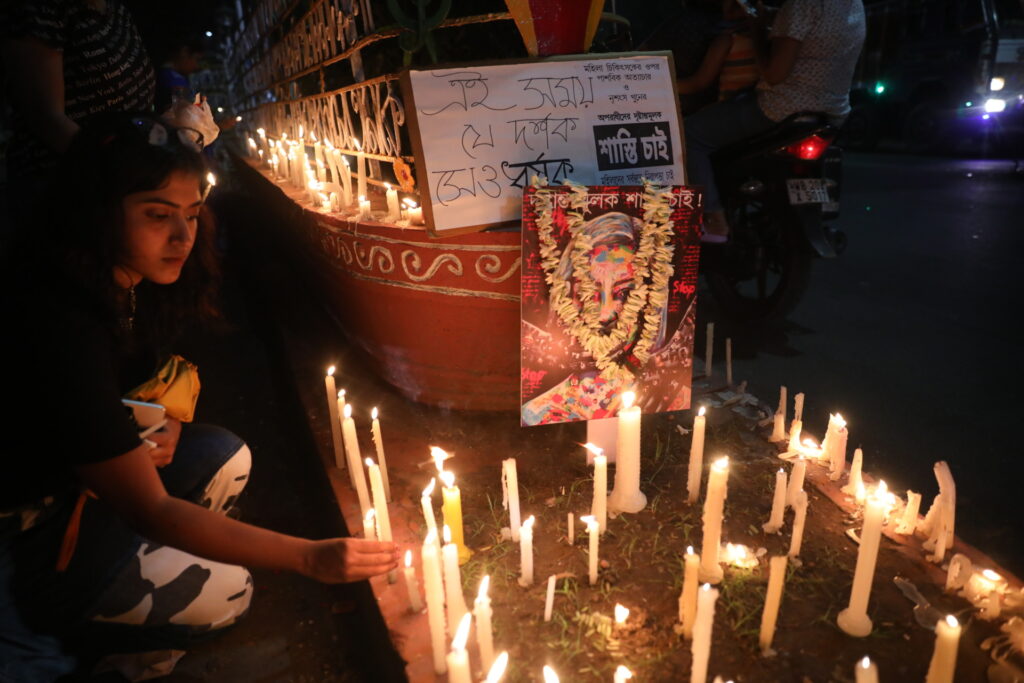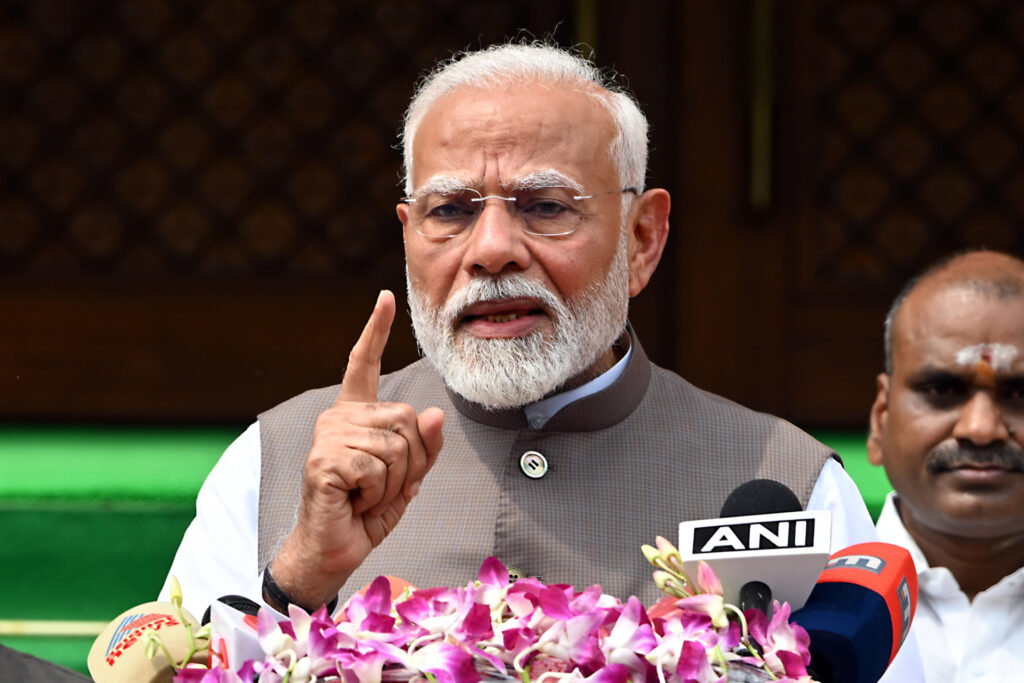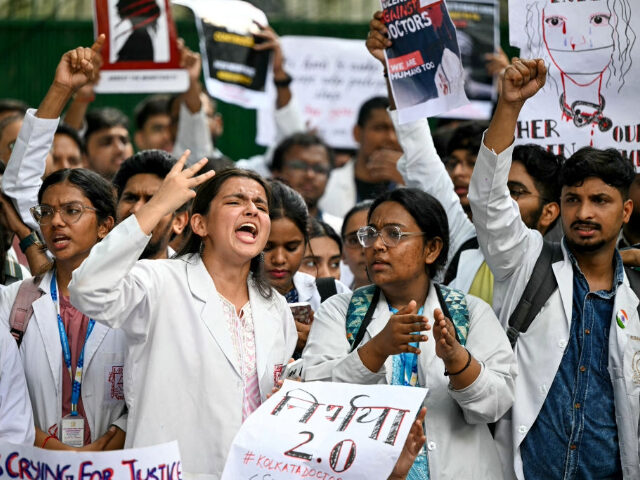Doctors in India are considering upgrading their protests to a national strike, shutting down all but essential medical services for 24 hours on Saturday.
The doctors are outraged over the rape and murder of one of their colleagues, a terrible crime they see as a consequence of the poor security provided to healthcare professionals.
The inciting event of India’s doctor protest was the hideous assault of a 31-year-old female trainee doctor while she was taking a nap after working a long shift at the RG Kar Medical College in Kolkata on August 9.
The young doctor reportedly ate a quick late-night meal with colleagues after working 20 hours of her scheduled 36-hour shift, then looked for some peace and quiet in an empty seminar room. Her half-naked, blood-splattered body was found after she failed to return to duty. Her autopsy confirmed she was raped, subjected to “genital torture,” and bludgeoned to death.
Police said a volunteer worker at the hospital was their leading suspect in the crime, although the victim’s family believes she was attacked by multiple assailants.
Public outrage grew as state government officials were accused of mishandling the case. On Tuesday, the High Court in Kolkata ordered the case be transferred to India’s elite federal prosecutors, the Central Bureau of Investigation (CBI), to “inspire public confidence.”
The High Court also ordered the removal of Dr. Sandip Ghosh, principal of the RG Kar Medical College. Already under fire for the lax security afforded to students at his school, Ghosh made the situation much worse by publicly criticizing the victim for taking a nap in the seminar room.
Ghosh was quickly given another position at a different medical college, which did nothing to mollify angry doctors and citizens. On Friday, he demanded police protection because he believes his life is in danger.
The Indian public has indeed been inspired but not to confidence. Protest marches and candlelight vigils for the murdered medical trainee spread across the country like wildfire as long-simmering tensions over violence against women erupted.

Citizens hold a vigil after the rape and murder of a female doctor at the government-run RG Kar Medical College & Hospital in Kolkata, India, on August 15, 2024 (Rupak De Chowdhuri/NurPhoto via Getty Images).
Indian police said there were more than 31,000 reports of rape in 2022, which was 20 percent higher than in 2021. The true extent of the problem is even worse because crimes against women often go unreported in India, particularly in rural areas.
Indian culture tends to stigmatize victims of sexual assault and their families, and many Indians complain there is little reason to report such crimes because the police are so inept at investigating them. The apparent bungling of the Kolkata rape and homicide enraged a public that already distrusted law enforcement.
Dr. Johnrose Jayala, president of the Indian Medical Association (IMA), told the UK Guardian on Friday that another troubling issue spotlighted by the Kolkata case is violence perpetrated against doctors by angry patients and their families. Jayalal cited cases of doctors being severely beaten by families after a patient has died.
“Look, 50% of doctors are women, 90% of nursing staff are women. We want the government to take responsibility for ensuring their safety by declaring hospitals as protection zones, just like airports and the courts,” he said.
On Wednesday, the IMA called a nationwide strike, and doctors hit the streets to demand better security for healthcare workers. Other Indian medical associations quickly joined the protests, although one of them, the Federation of Resident Doctors Association, called off its strike after a meeting with Health Minister Jagat Prakash Nadda. The federation said it was satisfied with Nadda’s promise that a law called the Central Healthcare Protection Act would be drafted within two weeks.
Thousands of healthcare professionals and other Indians continued marching. Hundreds were arrested in the state of West Bengal on Friday, even as politicians from both the governing Bharatiya Janata Party (BJP) of Prime Minister Narendra Modi and the opposition began joining the marches and addressing demonstrators.
“There is anger for atrocities committed against our mothers and sisters, there is anger in the nation about that,” Modi acknowledged during an Independence Day address in New Delhi on Thursday.
“Crimes against women should be quickly investigated. Monstrous behavior against women should be severely and quickly punished. That is essential for creating deterrence and confidence in the society,” Modi said.

Indian Prime Minister Narendra Modi (Prakash Singh/Bloomberg via Getty Images)
On Wednesday, an angry mob attacked and vandalized the RG Kar Medical College, the scene of the trainee doctor’s murder. A relatively small group of men reportedly broke away from a massive and peaceable protest march outside the hospital and ransacked the emergency room. Police fired tear gas to disperse the attackers.
The IMA said on Thursday that it would escalate its strike into a complete shutdown on Saturday, with only essential and emergency medical services provided.
The father of the Kolkata victim on Friday refused to accept compensation for the crime.
“I have turned down the compensation. It will hurt my daughter if I accept money as compensation for her death. I want justice,” he said.
The father said he has met with CBI investigators and received assurances that all guilty parties would be arrested and punished. He said it would not be “lawfully appropriate” to discuss further details of the meeting.
“I express gratitude to everyone, regarding the protest that has been happening across the country and world. I consider everyone who is standing with us, as my sons and daughters,” he said.
The police do have a suspect in custody, a civil volunteer named Sanjay Roy. On Thursday, CBI officials tried to take Roy for a medical checkup, only to turn back when the police van was surrounded by angry protesters. A second hospital refused to examine Roy, but the police eventually found a facility willing to perform the service.

COMMENTS
Please let us know if you're having issues with commenting.